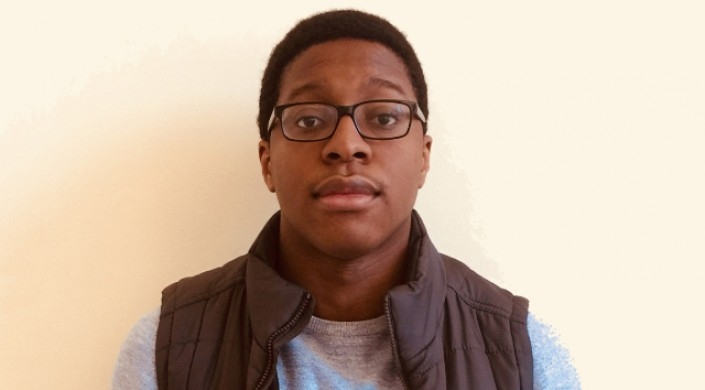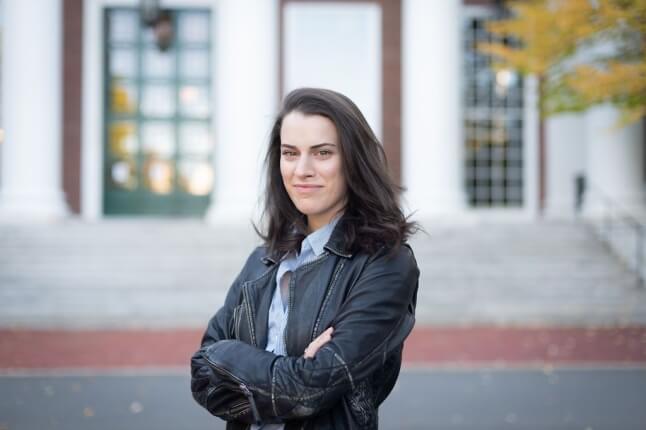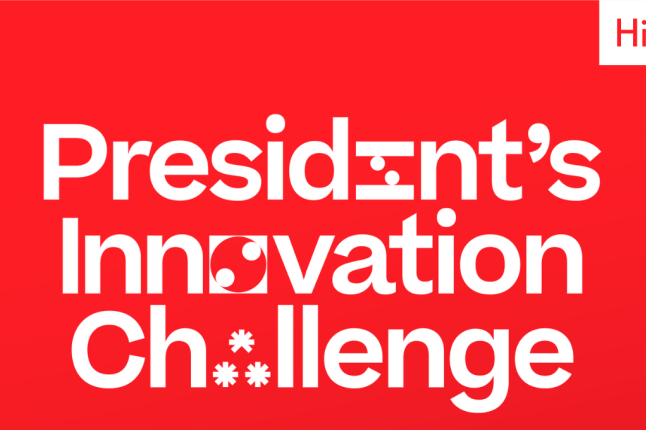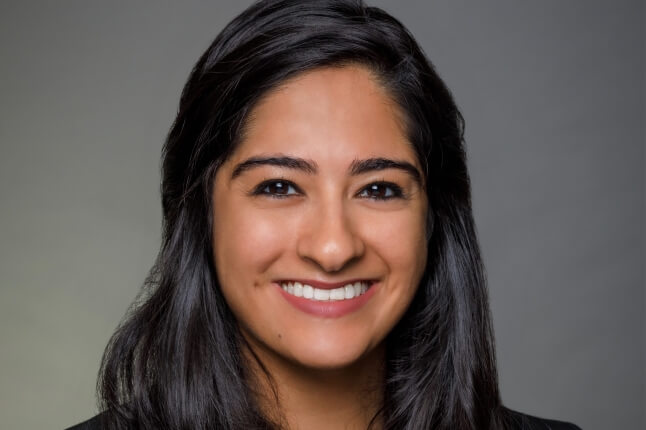News
To help people better understand their dreams, Harvard student Chris Ufere, A.B. ’18, an economics concentrator, launched uDreamed, a mobile application that combines dream recording, interpretation, community-building, and the latest research. (Photo provided by Chris Ufere.)
Over a lifetime, the average person spends about six years dreaming. But for many, those fleeting windows into the subconscious quickly escape the mind as soon as the alarm clock rings.
To help people better understand their dreams, Harvard student Chris Ufere, A.B. ’18, an economics concentrator, launched uDreamed, a mobile application that combines dream recording, interpretation, community-building, and the latest research.
“Dream experiences are very mysterious. People often wonder why did I dream this and what does it mean? For centuries, people have been trying to figure this out,” he said. “We are taking all the knowledge we can from neuropsychology and psychology research and data science to help people make sense of their dream experiences.”
 Dreaming is a sequence of subjective experiences during specific stages of sleep, predominantly in rapid-eye-movement (REM) sleep, but also in non-rapid-movement (NREM) sleep, Ufere explained. While no one knows exactly why we dream, one hypothesis from Finnish neuroscientist Antti Revonsuo suggests that dreams are an evolutionary biological defense mechanism—dreams remind us of threats in our daily lives so we become more aware and better prepared to act. Other important research has suggested that dreams are continuous with our waking thoughts, behavior, and concerns.
Dreaming is a sequence of subjective experiences during specific stages of sleep, predominantly in rapid-eye-movement (REM) sleep, but also in non-rapid-movement (NREM) sleep, Ufere explained. While no one knows exactly why we dream, one hypothesis from Finnish neuroscientist Antti Revonsuo suggests that dreams are an evolutionary biological defense mechanism—dreams remind us of threats in our daily lives so we become more aware and better prepared to act. Other important research has suggested that dreams are continuous with our waking thoughts, behavior, and concerns.
In either case, better understanding dream content could help individuals learn about themselves, Ufere said.
“What we are learning is that dreams, far from being a meaningless experience, are especially informative about the emotional state of the dreamer,” he said. “Since emotions shape behavior, to understand human behavior, we believe that we must understand dream contents – such as emotions felt while dreaming.”
Users record a dream in the uDreamed app, which provides advanced analytics tools and multiple definitions of keywords based on user experiences, neuropsychology research, and dream work insights. Dream work explores the processes that cause the transformation of unconscious thoughts into the content of dreams, such as symbolism.
Users then can use the tools to analyze their own dreams as well as global data based on selected criteria (such as the number of people worldwide who recorded dreams about a certain topic). Based on a user’s selections, the app’s pattern identification system provides insights into their emotions and daily lives.
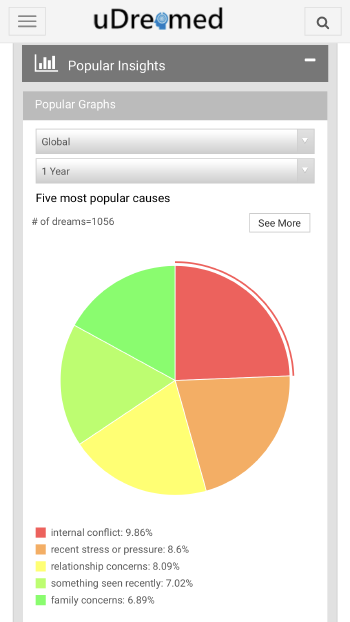 The app also seeks to build a community by automatically matching individuals whose dreams are similar based on user-selected criteria. About 70 million people worldwide recall and write down dreams regularly. Individuals can search uDreamed data to study dream trends and factoids around the globe. Users can also connect with dream therapists and licensed practitioners for more in-depth dream interpretations.
The app also seeks to build a community by automatically matching individuals whose dreams are similar based on user-selected criteria. About 70 million people worldwide recall and write down dreams regularly. Individuals can search uDreamed data to study dream trends and factoids around the globe. Users can also connect with dream therapists and licensed practitioners for more in-depth dream interpretations.
Ufere has been fascinated by dreams since his childhood. “Inception,” an action movie centered on dream-sharing technology, is his favorite film. He developed the uDreamed concept in high school, but spent the next few years conducting research, building a team, and finding funding before launching the app in July. He enrolled in the John A. Paulson School of Engineering and Applied Sciences (SEAS) course Startup R&D (ES 95r) to learn about entrepreneurship and seek guidance from experts and peers.
“The main thing that makes you succeed as an entrepreneur is the amount of risk that you are willing to take,” he said. “The amount of guidance you have while taking that risk is invaluable.”
Lessons from ES 95r have proven instrumental as Ufere launched and expanded uDreamed, which has already accumulated thousands of users and collected thousands of user-recorded dreams in its beta stages.
Ufere and his team are now enhancing the app’s user interface and seeking additional funding to launch worldwide and grow the user base.
“There are so many things we want to know about dreams. If dream emotions are consistent with waking moods, perhaps we can infer emotional wellbeing or the onset of psychological problems, like post-traumatic stress disorder or anxiety disorders,” he said. “Someday dream content could even be used in diagnosis.”
Ufere and his collaborators see many more opportunities for research as the user base grows. Their next project will use machine learning to infer psychopathology from dream data.
He considers it extremely rewarding to help people gain new insights about themselves and their lives by better understanding the content of their dreams.
“Dreaming is something that is unique to us and identifies with all of us. Right now, it is a completely open playing field,” he said. “I feel like I have a product that can push forward in that sphere.”
Topics: Entrepreneurship
Cutting-edge science delivered direct to your inbox.
Join the Harvard SEAS mailing list.
Press Contact
Adam Zewe | 617-496-5878 | azewe@seas.harvard.edu
